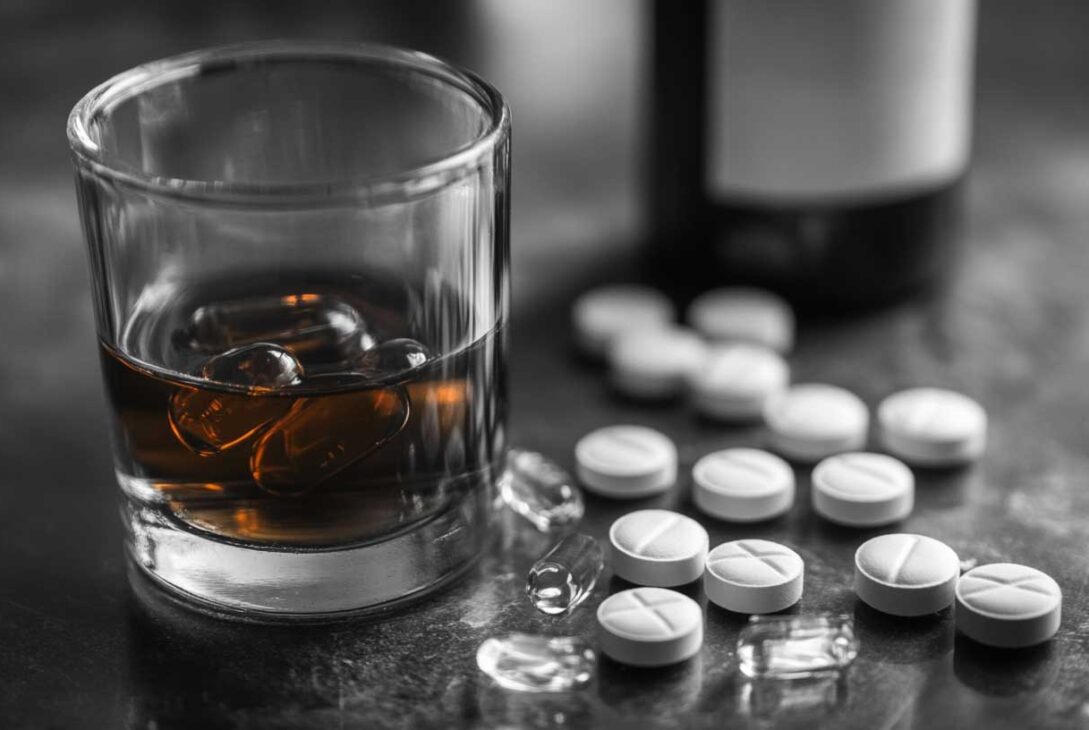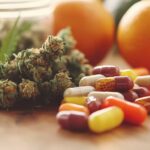Introduction
In an era where addiction and substance use disorders present critical challenges to health systems and individuals alike, innovative treatments are increasingly sought after. One compound gaining attention is Cannabidiol (CBD), a non-psychoactive component of cannabis that holds promise in treating addiction and managing withdrawal symptoms. This guide will explore CBD’s therapeutic properties, its effectiveness across various types of addiction, the latest research, and the considerations to keep in mind when considering CBD as part of an addiction recovery journey.
Therapeutic Properties of CBD in Addiction Treatment
CBD is not just a trendy wellness ingredient; it has significant therapeutic potential, particularly concerning addiction recovery. Its mechanisms primarily revolve around the brain’s reward system, which plays a crucial role in addiction.
Impact on the Brain’s Reward System
When substances like opioids or cocaine are consumed, they trigger powerful feelings of pleasure by activating the brain’s reward center. CBD can modulate this system, diminishing the rewarding effects of addictive substances. This supports the idea that CBD may help reduce the likelihood of relapse in individuals recovering from addiction.
Reducing Cravings and Relapse
One of the most challenging aspects of overcoming addiction is dealing with cravings. Research indicates that CBD may help manage these cravings significantly. In a clinical trial involving individuals with opioid addiction, those treated with CBD reported a substantial decrease in cravings and anxiety related to drug cues. Remarkably, this reduction persisted for about a week after treatment, demonstrating CBD’s potential long-term benefits in craving management.
Managing Withdrawal Symptoms
The journey through withdrawal is often the most daunting phase of addiction recovery. CBD may ease this process by alleviating several uncomfortable symptoms:
- Anxiety and Depression: CBD has anxiolytic (anxiety-reducing) properties, which can help manage the anxiety and depressive symptoms that often accompany withdrawal.
- Pain and Muscle Spasms: With its analgesic properties, CBD can provide relief from the physical pain and muscle spasms that many experience during withdrawal.
- Insomnia: Sleep disturbances are common during withdrawal, and studies suggest that CBD can improve sleep quality, helping individuals rest better during recovery.
- Nausea and Vomiting: CBD has been found to reduce nausea and vomiting, symptoms which can make the withdrawal process tough to endure.
Neuroprotective Effects
Beyond managing withdrawal, CBD may also have neuroprotective effects. Prolonged substance abuse can lead to brain damage, and CBD may help counteract this by reducing inflammation and oxidative stress. This restoration of brain function can be crucial for individuals in recovery, paving the way for improved mental health and emotional stability.
Effectiveness of CBD in Various Addictions
As research on CBD continues to expand, we can see promising developments in its effectiveness against different types of addiction.
Opioid Addiction
Opioid addiction is a pressing issue with devastating social and health impacts. Studies indicate that CBD can diminish the rewarding impact of opioids, lessen drug-seeking behaviors, and ease withdrawal symptoms, making it a valuable addition to recovery strategies for those struggling with opioid dependence.
Cannabis and Tobacco Addiction
Interestingly, preliminary findings also suggest that CBD may be useful for those looking to overcome cannabis and tobacco addictions. For cannabis dependency, CBD may mitigate the reinforcing effects of the drug. In tobacco addiction cases, participants have reported reducing cigarette usage by approximately 40% during treatment with CBD.
Alcohol Addiction
Research into CBD’s effects on alcohol addiction is still in its infancy, but early data is promising. CBD may reduce alcohol-related neurodegeneration and prevent relapse, thereby aiding recovery efforts, though further research is warranted to fully understand its potential.
Current Research and Future Directions
While the prospects for CBD in addiction treatment are hopeful, it is important to recognize that much of the research is still in preliminary stages. A review of existing studies has highlighted the therapeutic potential of CBD, but larger, more rigorous trials are necessary to establish conclusive evidence supporting its efficacy.
Challenges and Considerations
Before diving into CBD therapy, it’s vital to consider several factors:
- Regulation: The market for cannabis and CBD products is vast and often unregulated. Seeking out FDA-approved products like EPIDIOLEX can provide a safer alternative as proven efficacy is confirmed.
- Interactions with Other Treatments: Healthcare professionals should take care to note possible interactions between CBD and other medications, particularly those involved in addiction treatment.
Conclusion
CBD presents a compelling avenue for treating addiction and alleviating withdrawal symptoms. Its ability to positively influence the brain’s reward system, coupled with its capacity for reducing cravings and managing withdrawal discomfort, positions it as a valuable asset in recovery efforts. However, successful integration of CBD into a treatment plan should be guided by healthcare professionals based on credible research.
Actionable Tips for Those Considering CBD
- Consult a Healthcare Professional: Before embarking on any CBD regimen, it’s crucial to discuss potential benefits and risks with a healthcare provider.
- Choose Regulated Products: Opt for products from reputable sources and, where possible, FDA-approved medications to ensure safety and efficacy.
- Combine with Traditional Treatments: CBD should complement traditional recovery methods rather than serve as a standalone treatment.
As individuals navigate their recovery journeys, incorporating CBD thoughtfully may offer additional support towards achieving long-term health and sobriety.
Feel free to explore additional resources for insights on CBD’s impact on addiction recovery.
Visual Suggestions:
- An infographic summarizing the benefits of CBD for addiction recovery.
- A diagram illustrating CBD’s interaction with the brain’s reward system.
- A comparison chart between CBD and traditional treatment methods.
Understanding CBD’s potential in treating addiction is crucial. Equipped with the right knowledge, individuals can advocate for their treatment needs while seeking the most effective path to recovery.




















